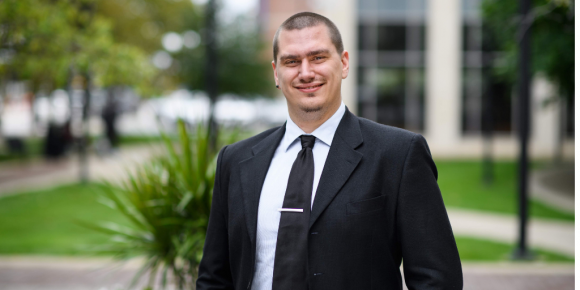
Demeri spent the summer clerking for the nation’s largest and oldest public defender office—the Law Offices of Los Angeles County Public Defender.
In 1963, the Supreme Court of the United States changed the face of the country’s legal system. When deciding Gideon v. Wainwright, the Court read the Sixth Amendment to require counsel in all criminal cases, even if the defendant is indigent. Although a logical conclusion for anyone who has read the Sixth Amendment, the decision led to an explosion of public defenders across the country.
This summer, I had the honor of clerking for the nation’s largest and oldest public defender office—the Law Offices of Los Angeles County Public Defender. The Office was first established in 1914 thanks to the work of Clara Shortridge Foltz, the first woman to practice law on the West Coast, and was the first public defender office in the world. Today, the Office has thirty-six locations around Los Angeles County and employs over 700 attorneys, not including its paralegals, investigators, psychiatric social workers, and administrative/support staff.
The skills I’ve earned while clerking with the Public Defenders Office will stay with me the rest of my career. Some days I would sit in a holding cell interviewing clients for arraignment court. Other days I would spend deep in legal research looking up obscure points of law and drafting motions such as a 995 (Motion to Dismiss) or a 236.14 (Petition for Vacatur Relief Based on Human Trafficking Status). Within my first month, I was sitting second chair for a felony charge that ended up pleading out the first day of trial. My favorite moments, however, was when I was strategizing with attorneys on how to best advance the rights of our clients inside, and out of, the courtroom.
One of the most common questions people ask me when discussing my summer is job is “How can you defend someone who has committed such heinous crimes?” It’s a question that most defenders have heard, but something that misses the mark. When I work to support the public defenders, my responsibility is to ensure that our client’s constitutional rights are protected. No criminal charge, no matter how “heinous,” is so powerful that it overrides the rights that are inherent to members of our society. Importantly, it is the state’s burden to prove beyond a reasonable doubt that the charged is guilty as accused. If the prosecution is unable to prove these charges, then fairness requires that the defendant no longer be held to answer for them. When I do answer that inevitable question, I am proud to say I am fulfilling my civic duty.
Accepting this summer clerkship comes after a long history of serving the public. Before coming to law school, I co-founded the New Jersey Red Umbrella Alliance, the state's only sex worker rights organization, and passionately fought for the rights of those involved in the sex trades from the local, state, national and international levels. In 2015, I testified about the human rights violations of sex workers and people profiled as such before the United Nations Human Rights Council during the Universal Period Review of the United States. Since then I’ve worked as a Boycott Organizer with the international labor union UNITE HERE!, served on the Board of Directors for the Sex Workers Outreach Project USA, clerked with the American Civil Liberties Union's LGBT & HIV Project, successfully wrote and lobbied for the National Lawyer’s Guild’s 2018 Resolution to Condemn SESTA-FOSTA, and advocated alongside countless community-based organizations.
With each new experience, I continue to fight for the advancement of rights of those most marginalized in our society. The ability to wield the power of the law is a privilege and something I look forward to using for others. Until then, I maintain a commitment to learning, growing, and positively influencing my surroundings.
